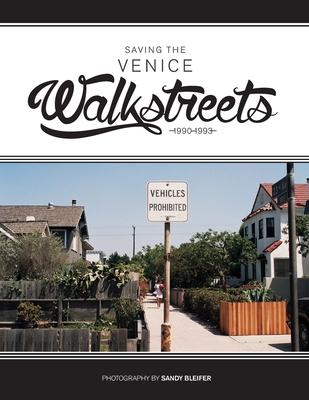Photodocumentation of the Walkstreets of Venice, California in the early 1990s when they had been under consideration for removal in a new Coastal Plan.
The cherished Walkstreets of Venice, California as described and acclaimed by its residents. Sidewalks instead of roadways connect neighbors with facing front yards and enable social discourse and a sense of security rare in urban America. This type of urban design, a feature of rural areas in the past, is enjoying a revival as Californians strive to reduce their dependence on automobiles.
In the early 1990s, the Coastal Commission proposed the removal of all fences and landscaping on the 65 Venice Beach Walkstreets; this book is a compilation and documentation of the successful campaign that saved the Venice Walkstreets, utilizing Sandy Bleifer's photographs, supported by public testimonials and a strategy for political action.
More than a photo-documentation of the Venice Beach Walkstreets in the early 1900s, this book served to document the community's efforts and make the case for preservation at a critical time when the Coastal Commission was intent on obliterating them. The first photos are stark black and white, foretelling the kinds of encroachments and blight that would result from further degrading the public right of way that residents have always enhanced as their front yards and gardens. A sampling of public testimony and political support spells out the issues and methods pursued to address them.
A large number of color photos feature the idiosyncratic fence lines on each of the Walkstreets as well as a range of landscape design from well-conceived to ad hoc and eccentric. Renters live in single family homes and multi-unit dwellings interspersed with owner occupied homes. Venice is the antithesis of a "planned community" with its strict design guidelines: Venice residents are free to use their front yards for self-expression, property enhancement or simply basic outdoor comfort. These Walkstreet configurations (narrow pedestrian corridors flanked by private gardens) have worked well for over a Century, allowing for an idiosyncratic display of garden designs while providing a buffer zone for the residents.
The photographs are matched with commentary from the Venice community offering insight into the impact of these front yards on the quality of life for residents. It is the juxtaposition of images of these front yards as they appear to a pedestrian/visitor along the walkways with testimony of those living in such proximity to the public that truly made the case for preservation.
